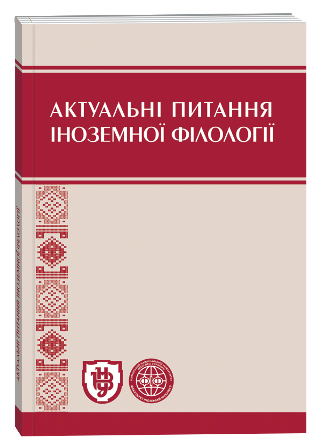INTERACTION OF FICTION AND FOLKLORE IN THEORETICAL AND METHODOLOGICAL ASPECT
DOI:
https://doi.org/10.32782/2410-0927-2021-14-10Keywords:
folklore, folklore of literature, theoretical and methodological aspect, creativity, literary workAbstract
The article considers the main problems of interaction between folklore and literature in European discourse. The work emphasizes that the conceptual content of the term «folklore of literature» is complex and multifaceted. The study of folklore and folklore of literature as a phenomenon of diachronic connection of generations is an effective means of preserving and retransmitting the historical memory of the people, awareness of national identity; the analysis is carried out that in this process of national self-awareness, cultural creation folklore and its dialogue with literature is extremely important. The relationship between folklore and literature is mostly a dialogical two-dimensional process, ie the folklore of literature is realized simultaneously when a folklore work or its element enters literature, and the «literaryness» of folklore when the «book» text is folklorized. The focus is on distinguishing the stages of intersystem folklore-literary interaction as a process of improving the formal and semantic features. The theoretical and methodological generalization of the relationship between literature and folklore, which is the ratio of individual (author's) and collective (folk), traditional (folk) and new (author's) in the process of creating a work of art and the dynamics of aesthetic interaction. Theoretically and methodologically it is appropriate to analyze the literary and folklore relationship in terms of phenomenology, system, functioning, genetic (or historical) development and in terms of typology. The specificity of the relationship between the two types of literature can be traced, which convinces us that the genetic relations in them are typologically different both within each of the species and between them. The works of domestic and foreign scholars are observed, who observed and noted that the most common form of folklore-literary ties of Ukrainian and Slavic literature is the use of folklore sources of neighboring, related in origin, history and language of the people.
References
Грушевський М. С. Історія української літератури. У 6 т. Т. 1. Київ, Либідь, 1993. 392 с.
Далгат У. Б. Література та фольклор. Теоретичні аспекти. Москва, Наука, 1981. 303 с.
Дей О. І. Український фольклор у слов’янських літературах. Доповіді радянської делегації, V міжнародний з’їзд славістів. К, 1963. 272 с.
Ємельянов Л. І. Російська література та фольклор (ХІ–ХVIII ст.). Ленінград, 1970. С. 11–17.
Лихачов Д. С. Розвиток російської літератури Х–XVII століть. Ленінград, Наука, 1973. 254 с.
Ковалів. Ю. Літературознавчий словник-довідник. Літературознавча енциклопедія. У 3 т. Т. 1. Київ, Видавничий центр «Академія», 2007. 579 с.
Марків Р. В. Міфологічний фольклоризм в українській літературі початку ХХ століття (на матеріалі творів Ольги Кобилянської, Михайла Коцюбинського, Лесі Українки) : автореф. Дис. канд. філол. наук: 10.01.07 (фольклористика). Львів, 2008. 21 с.
Марків Р. В. Теоретичні аспекти фольклоризму в літературі. Вісник львів. ун-ту. Серія Філол. Львів, 2007. Вип. 41. С. 215–223.
Медріш Д. Н. Література та фольклорна традиція. Питання поетики. Саратов, 1980. 296 с.
Нудьга Г. А. Пісні українських поетів та їх народні переробки. Пісні та романси українських поетів: У 2 т., Т. 1. Київ, Рад. письменник, 1956. С. 3–83.







